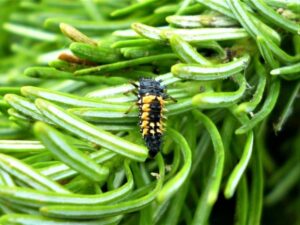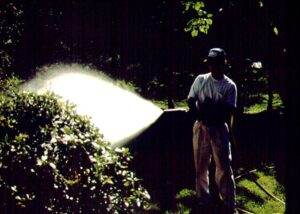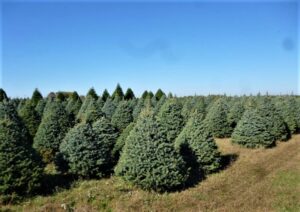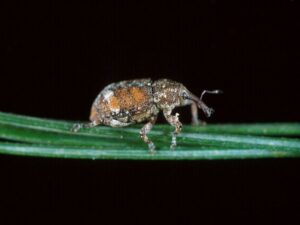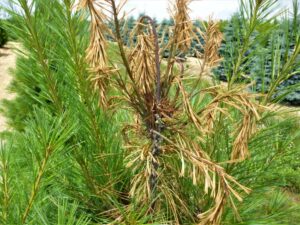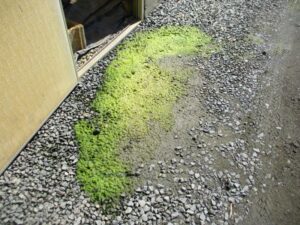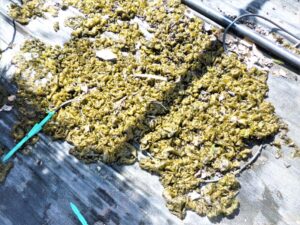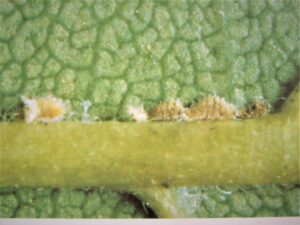Fungal Leaf Spots: Commonly found on the foliage of many plants, fungal leaf spots are largely cosmetic diseases. Most do not interfere with the normal growth & development of the plant. Therefore, within the landscape, fungicides are not normally recommended. Years that have relatively dry spring weather will experience fewer leaf spot infections.
Many fungal leaf spot infections will demonstrate typical symptoms. Surrounding the initial infected spot will be alternating light-dark-colored concentric rings. The darker areas contain plant-defensive chemicals that the plant uses in an attempt to compartmentalize the invading fungus. If the fungus is virulent enough it may have the ability to move past the barrier & infect the tissue outside of it. The plant will respond again & form a new barrier surrounding the infected area. Sometimes these light-dark discolorations can continue until a target appearance forms. Many times, black fruiting bodies can be seen within the center of the light-colored bull’s eye site where the infection originated.
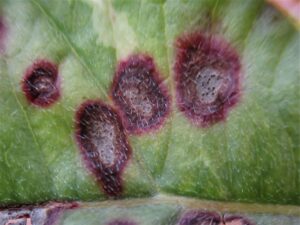
A dark colored halo will often surround the central fungus infection site. The black fruiting bodies can be observed within the central tan area. (Photo Credit: Steven K. Rettke, Rutgers Coop. Ext.)
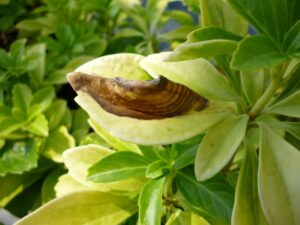
Alternating light-dark colored concentric rings. The dark rings are composed of plant defensive chemicals the plant uses in the attempt to wall-off the invading fungus. (Photo Credit: Steven K. Rettke, Rutgers Coop. Ext.)
The Landscape Pest Notes Blog for Early May 2023 is listed below & is composed of some commonly observed insect/mite & disease pests occurring within landscape & nursery plants. The insect/mite pests included are andromeda lace bug, lilac borer, boxwood leafminer, spruce spider mite, & horned/gouty oak galls. The disease pathogen pests included in addition to fungal leaf spots are black knot, sycamore anthracnose, Diplodia tip blight, & apple scab fungus.
